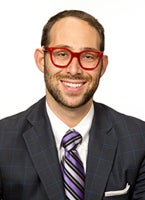In this episode we head into the future to learn about a controversial technology that could change the face of reproduction. Researchers are developing a technology called in vitro gametogenesis (IVG), which can reprogram human cells–like a skin cell–to become eggs or sperm. With IVG we could reach a future where anyone could produce either eggs or sperm, in potentially limitless quantities. This could open up a whole world of new options for how humans reproduce. Startup companies are working to bring this science to the public in ways that bypass the usual research routes for new reproductive technologies. When would it be ethically acceptable to try IVG to make a baby? How can we ensure the technology will be used ethically, including how it should be regulated?
playing god? A bioethics podcast
- Episode 1: I Would’ve Let You Die, Too
- Episode 2: The Girl Who Died Twice
- Episode 3: Need a New Liver? Drinkers to the Back of the Line
- Episode 4: Why Can’t I Buy A Kidney?
- Episode 5: A Womb of One’s Own?
- Episode 6: Creating One Life to Save Another
- Episode 7: An Off Switch for Depression?
- Episode 8: Miracle Drugs, Million Dollar Price Tags
- Episode 9: The Future of Baby-Making
- Prequel: The God Squad
- playing god? In the Classroom
Episode 9: The Future of Baby-Making

Amander Clark
Professor, Molecular, Cell and Developmental Biology
University of California, Los Angeles

I. Glenn Cohen
James A. Attwood and Leslie Williams Professor of Law, Deputy Dean and Faculty Director
Petrie-Flom Center for Health Law Policy, Biotechnology & Bioethics, Harvard Law School
Additional Resources
In 2023, the National Academies held a meeting to discuss the scientific, ethical, and legal implications of IVG. You can watch this meeting and learn more about IVG here.
The Greenwall Foundation seeks to make bioethics integral to decisions in health care, policy, and research. Learn more at greenwall.org.
Continue the Conversation
We want to hear your thoughts about this episode. Please share them using the form below and your comments could be posted on this page and made accessible to other listeners.